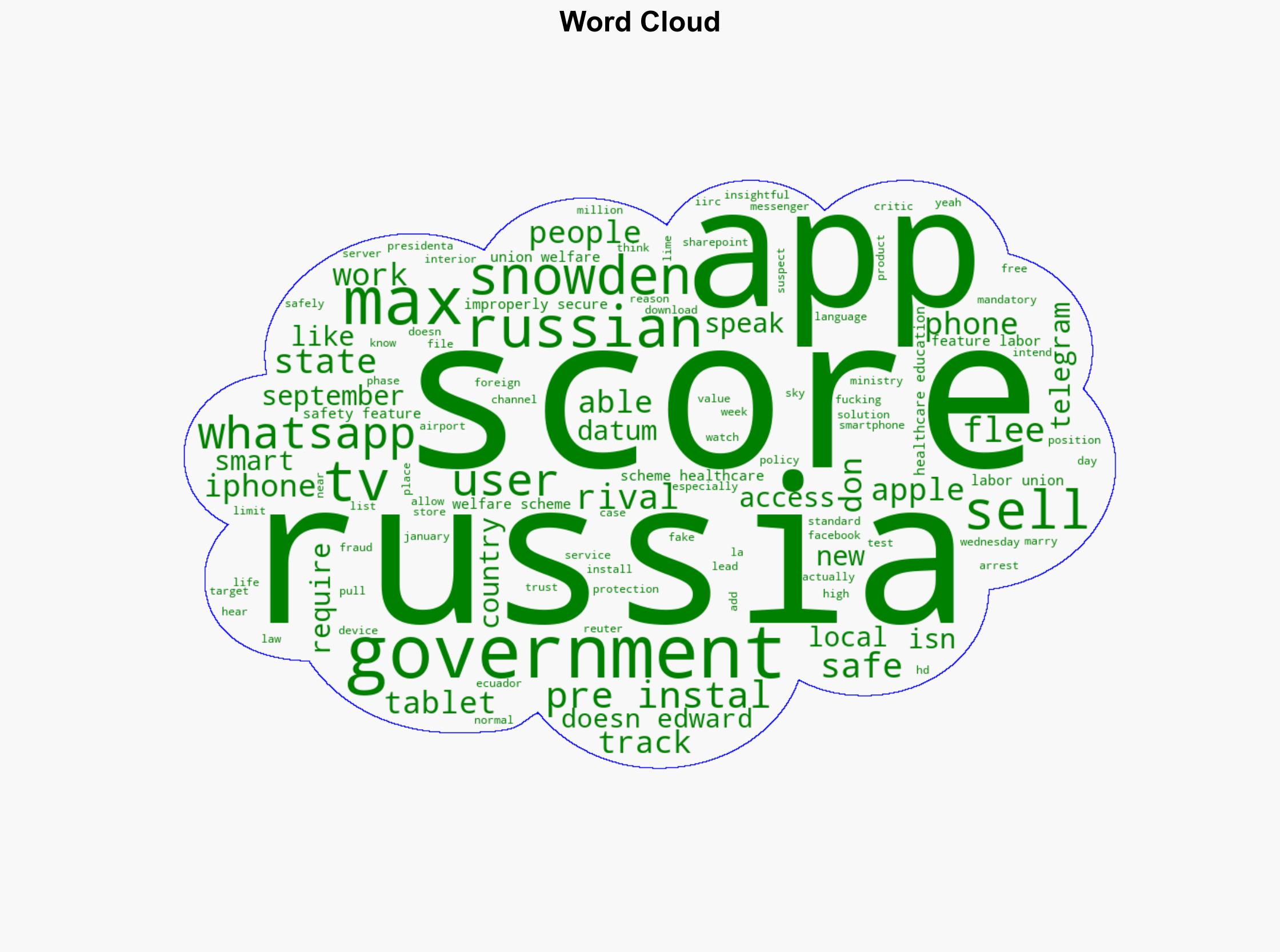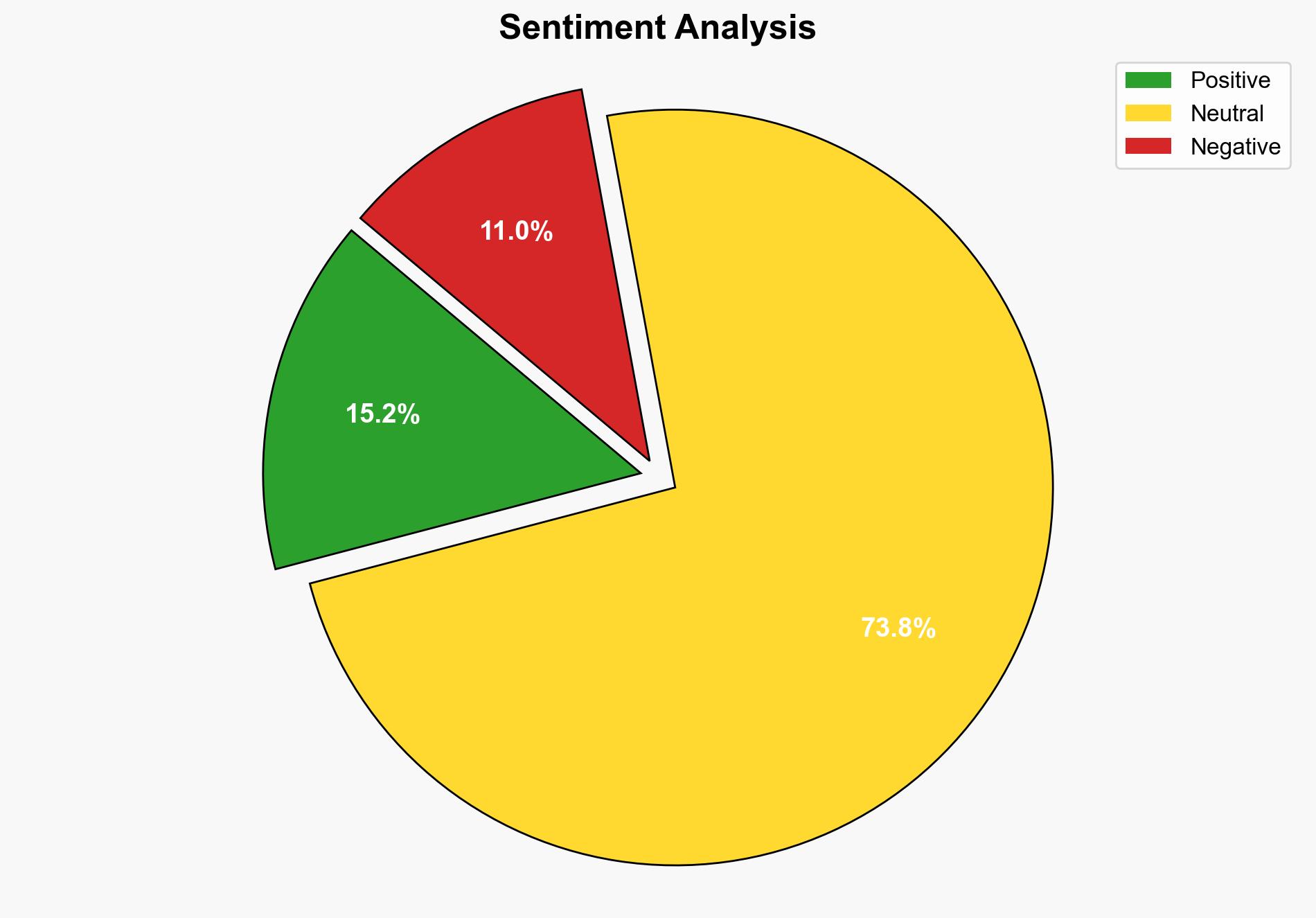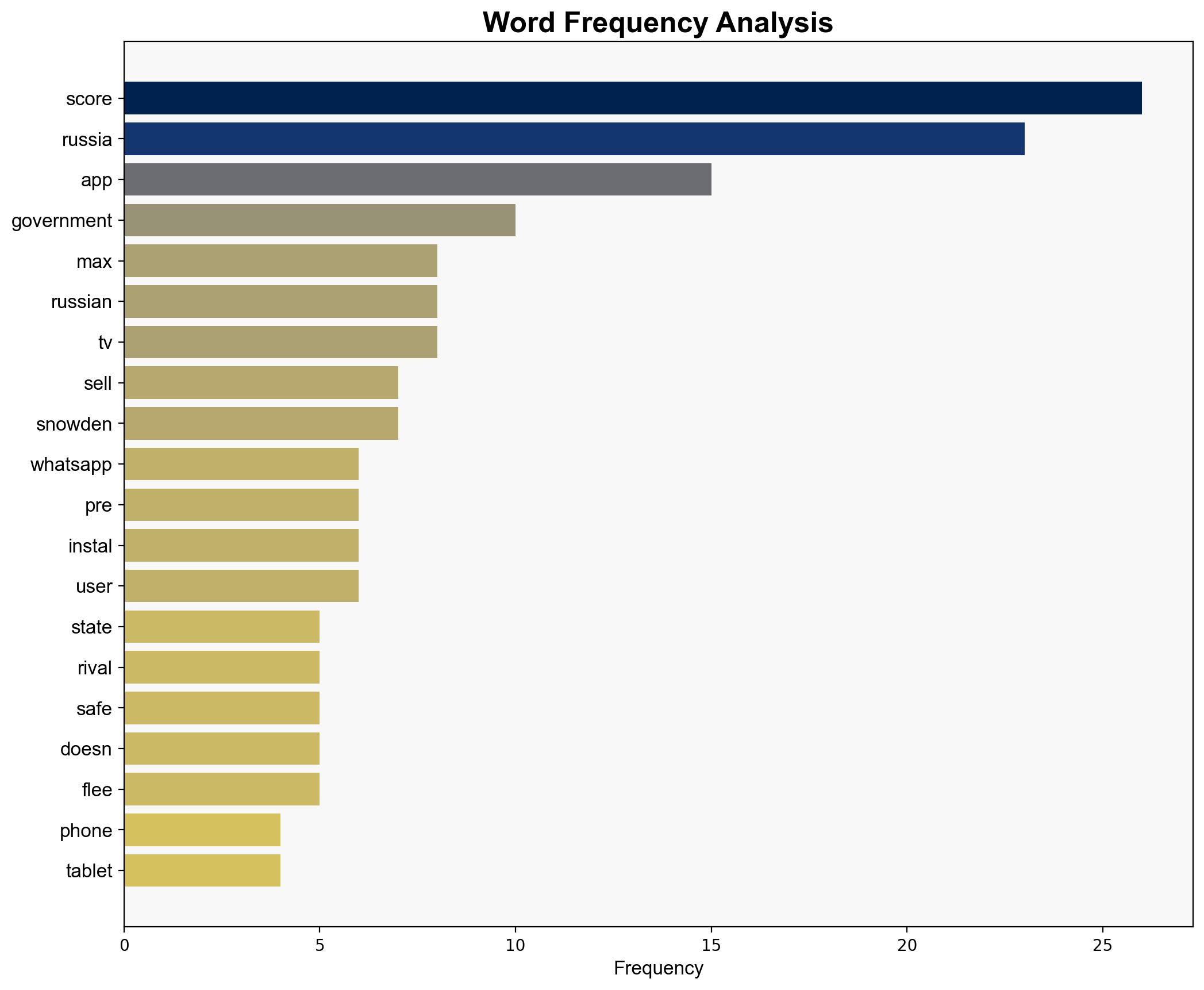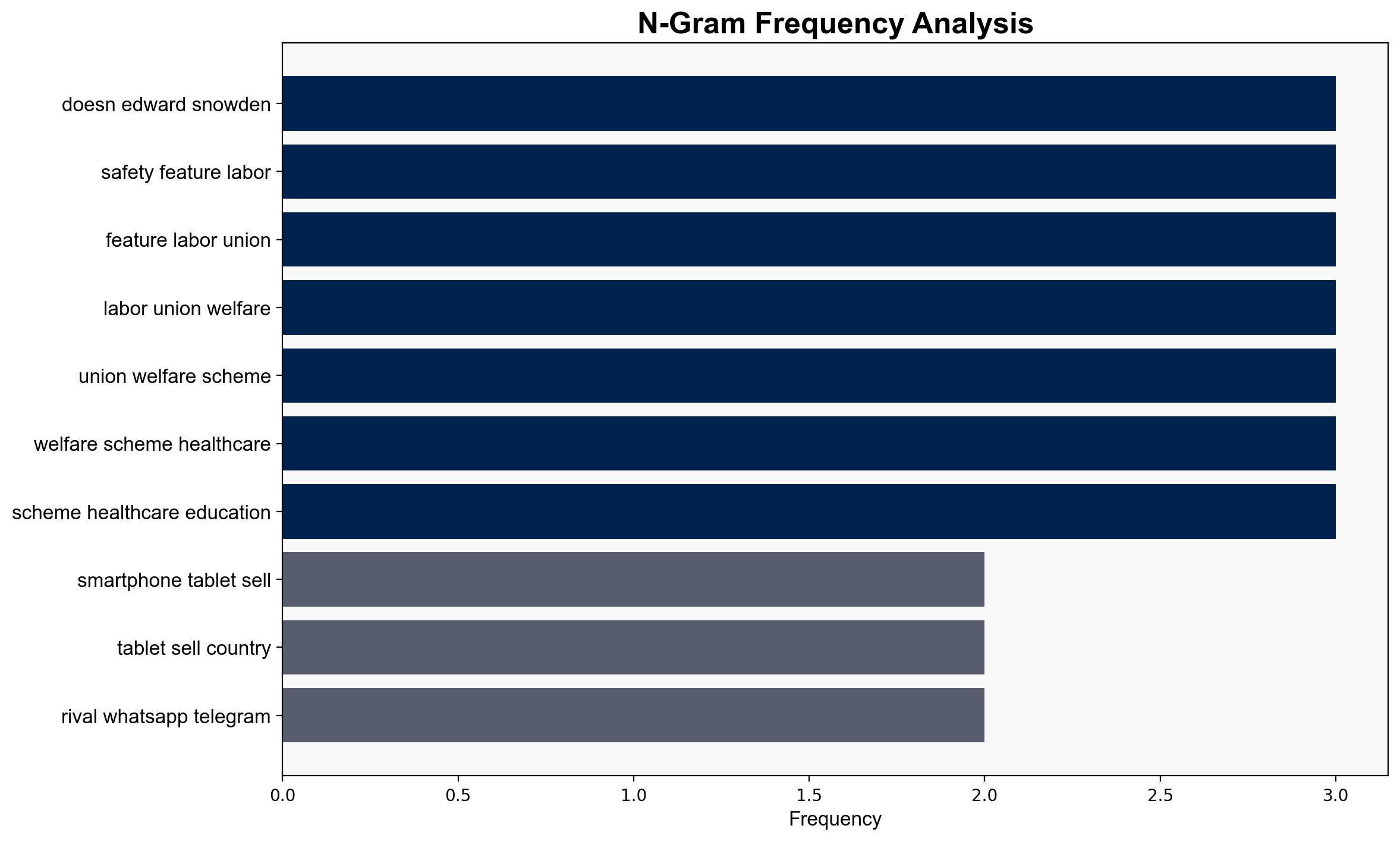Russia Orders State-Backed WhatsApp Rival Pre-Installed On Phones and Tablets – Slashdot.org
Published on: 2025-08-22
Intelligence Report: Russia Orders State-Backed WhatsApp Rival Pre-Installed On Phones and Tablets – Slashdot.org
1. BLUF (Bottom Line Up Front)
The strategic judgment is that Russia’s mandate to pre-install a state-backed messaging app on devices sold within its borders is primarily a move to enhance state surveillance capabilities and control over information dissemination. This hypothesis is supported by the integration of government services and the historical context of Russia’s digital policies. The confidence level in this assessment is moderate, given the potential for alternative motivations. Recommended action includes monitoring the app’s deployment and usage patterns for signs of increased state control or surveillance.
2. Competing Hypotheses
Hypothesis 1: The primary goal of pre-installing the state-backed messaging app is to enhance state surveillance and control over digital communications within Russia. This is supported by the app’s integration with government services and the historical context of Russia’s digital policies aimed at increasing state oversight.
Hypothesis 2: The initiative is primarily driven by economic motivations, aiming to support domestic technology industries and reduce reliance on foreign technology companies like WhatsApp and Telegram. This hypothesis considers the economic benefits of promoting a domestic app and reducing foreign influence in Russia’s digital ecosystem.
Using ACH 2.0, Hypothesis 1 is better supported due to the alignment with Russia’s past actions to control digital information and the strategic importance of surveillance in maintaining state security. However, Hypothesis 2 cannot be entirely dismissed, as economic motivations often accompany state-driven technology initiatives.
3. Key Assumptions and Red Flags
– **Assumptions**: It is assumed that the state-backed app has enhanced surveillance features compared to its foreign counterparts. It is also assumed that the Russian government prioritizes control over digital communications.
– **Red Flags**: The lack of detailed technical specifications of the app raises questions about its surveillance capabilities. The denial of spying accusations by the Kremlin could indicate potential deception.
– **Blind Spots**: Potential international reactions and the app’s reception among Russian citizens are not fully explored, which could impact the app’s success and the broader strategic environment.
4. Implications and Strategic Risks
– **Geopolitical**: Increased control over digital communications could lead to heightened tensions with Western countries, particularly if the app is perceived as a tool for state surveillance.
– **Cybersecurity**: The app’s integration with government services could present cybersecurity risks if vulnerabilities are exploited by malicious actors.
– **Economic**: Supporting domestic technology could bolster Russia’s economy but may also isolate it from global technological advancements.
– **Psychological**: The perception of increased state surveillance could lead to public distrust and resistance, impacting social stability.
5. Recommendations and Outlook
- Monitor the deployment and usage of the app for signs of increased state control or surveillance activities.
- Engage with international partners to assess potential cybersecurity threats associated with the app.
- Scenario Projections:
- Best Case: The app supports domestic technology growth without significant surveillance concerns.
- Worst Case: The app becomes a tool for extensive state surveillance, leading to international backlash and domestic unrest.
- Most Likely: The app enhances state control over digital communications with moderate economic benefits.
6. Key Individuals and Entities
– The Russian government as the primary entity behind the initiative.
– The developers of the state-backed messaging app.
– Users within Russia who may be affected by increased surveillance.
7. Thematic Tags
national security threats, cybersecurity, digital sovereignty, regional focus




